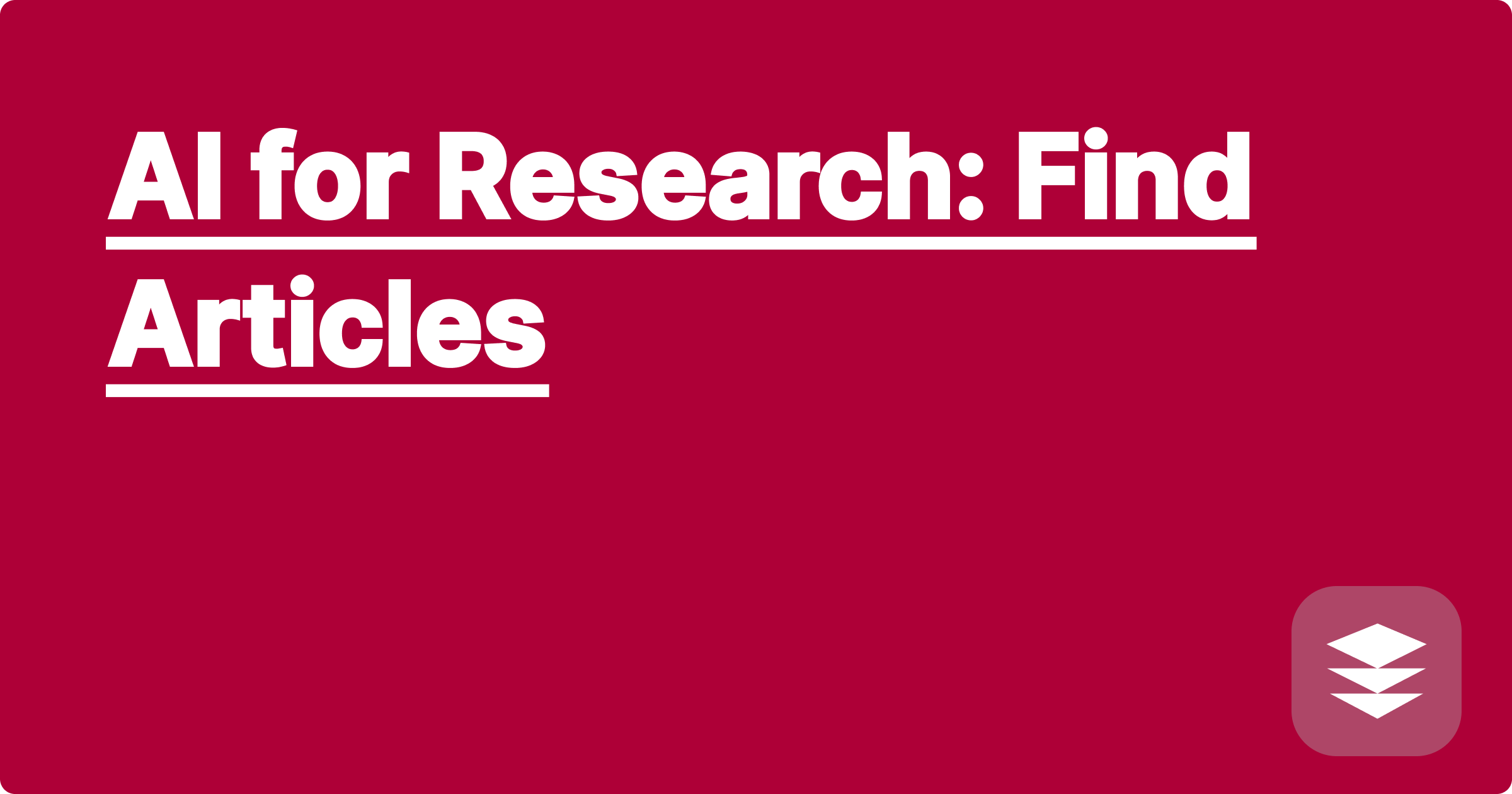
The sheer volume of research publications in STEM fields can feel overwhelming, especially for students juggling coursework, research projects, and the ever-present pressure of deadlines. Finding the right articles, extracting relevant information, and synthesizing it all into a coherent understanding can be a time-consuming, often frustrating, process. Traditional search methods can be inefficient, leading to hours spent sifting through irrelevant papers. Imagine a world where you could have a personalized research assistant, guiding you through the literature jungle and helping you unearth the gems of knowledge you need. This isn't science fiction; it's the reality of AI-powered research tools.
This blog post explores how AI can transform your research workflow, saving you valuable time and boosting your productivity. We'll delve into practical strategies for leveraging both well-known and lesser-known AI tools to streamline your literature search, analyze research papers, and even generate new research ideas. This is more than just a list of tools; it's a guide to incorporating AI into your daily research routine, empowering you to achieve academic success and make meaningful contributions to your field.
Whether you're a first-year undergraduate student just beginning your research journey or a seasoned PhD candidate preparing for your dissertation defense, the techniques and tools discussed here can revolutionize your approach to research. Get ready to discover how AI can become your indispensable research partner.
The traditional approach to literature review involves keyword searches in databases like PubMed, Scopus, or Web of Science. While these databases are valuable resources, they often return hundreds or even thousands of results, many of which are irrelevant to the specific research question. Manually filtering through these results can be incredibly time-consuming, diverting valuable time away from other critical tasks. Furthermore, keeping track of relevant papers, extracting key information, and synthesizing findings from multiple sources can quickly become an organizational nightmare. This challenge is exacerbated by the ever-increasing volume of scientific literature published each year, making it even harder to stay on top of the latest advancements in your field. The information overload can lead to feelings of being overwhelmed and discouraged, hindering research progress and impacting overall academic performance.
AI-powered tools offer a powerful solution to these challenges. Generalized AI partners (GPAI) can act as personalized research assistants, helping you formulate research questions, identify relevant keywords, and even suggest potential research avenues. Imagine having a virtual collaborator who can brainstorm with you, organize your literature, and provide insights based on a vast database of scientific knowledge. Tools like Elicit can help you quickly locate relevant papers based on research questions rather than just keywords, significantly reducing the time spent on manual filtering. Semantic Scholar can help you understand the context and impact of research papers, identifying key findings and connections between different studies. These tools can be integrated into your existing workflow, enhancing your traditional search methods and providing a more efficient and targeted approach to literature review.
Start by clearly defining your research question. This will help you focus your search and avoid getting lost in the vast sea of information. Next, use a GPAI like Elicit to explore relevant literature. Input your research question and Elicit will generate a list of relevant papers, ranked by relevance. You can further refine your search by specifying keywords, authors, or publication dates. Once you have a manageable list of papers, use a tool like Semantic Scholar to delve deeper into each paper. Semantic Scholar provides summaries, key findings, and links to related research, allowing you to quickly grasp the essence of each paper without having to read it in its entirety. As you explore the literature, use your GPAI to take notes, organize your findings, and identify connections between different studies. This will help you build a comprehensive understanding of the research landscape and identify potential gaps in the existing knowledge.
Consider a researcher investigating the effectiveness of a new drug for treating Alzheimer's disease. Using traditional methods, they might spend hours searching through PubMed using keywords like "Alzheimer's," "drug therapy," and the drug's name. With Elicit, they can simply input the research question, "What is the effectiveness of drug X in treating Alzheimer's disease?" Elicit will then generate a focused list of relevant papers, saving the researcher significant time and effort. Furthermore, using Semantic Scholar, they can quickly identify key findings from each paper, such as the drug's efficacy, side effects, and mechanism of action. This targeted approach allows the researcher to quickly synthesize information from multiple sources and gain a comprehensive understanding of the drug's potential benefits and risks.
Integrate AI tools into your daily research routine. Make it a habit to use Elicit or similar tools for your initial literature searches and Semantic Scholar for deeper analysis. Use your GPAI to organize your notes, track your progress, and generate new research ideas. Don’t be afraid to experiment with different AI tools and find the ones that best suit your needs. Remember, AI is a tool, not a replacement for critical thinking. Always evaluate the information provided by AI tools and use your own judgment to interpret the findings. By combining the power of AI with your own analytical skills, you can significantly enhance your research productivity and achieve academic success.
In conclusion, AI is transforming the landscape of academic research, offering powerful tools to streamline the literature review process, analyze research papers, and even generate new research ideas. By embracing these technologies and integrating them into your daily workflow, you can unlock new levels of efficiency and productivity, freeing up valuable time to focus on the most critical aspects of your research. Start exploring these tools today and discover how AI can empower you to achieve your academic goals and make a meaningful impact in your field. Don't get left behind in the AI revolution; embrace the future of research.